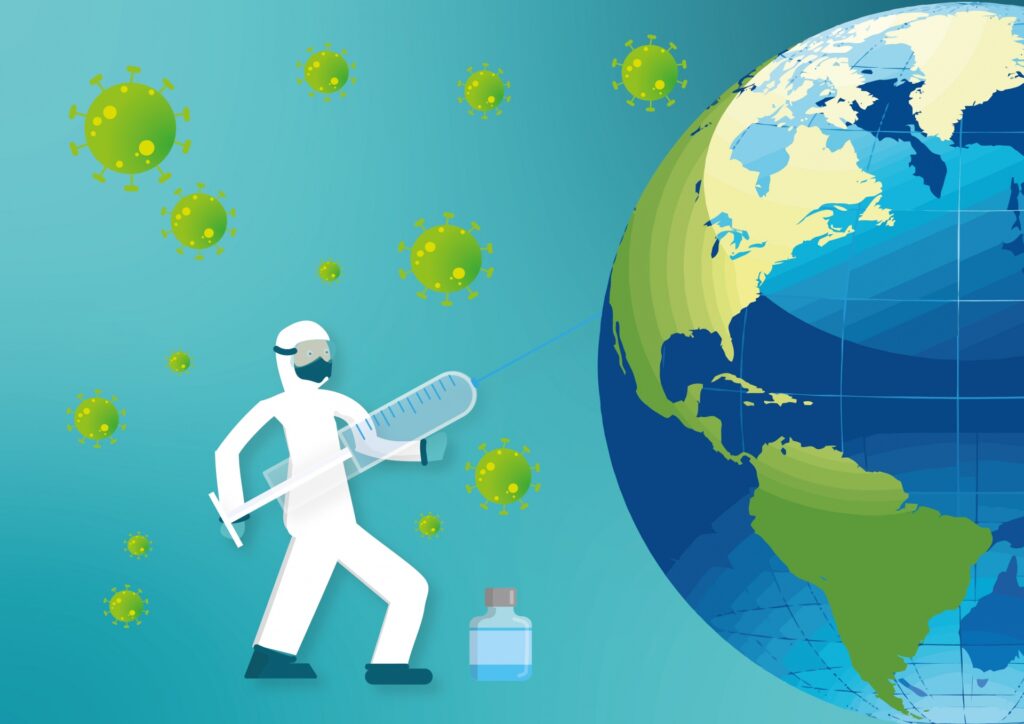08 Dec 2020 Covid-19 vaccine patents: a key research innovation driver or a profit-driven obstacle to fair and worldwide access to a cure?
Despite being a worldwide need, Covid-19 vaccines increase the gap between rich and poor countries. While developed nations support the enforcement of intellectual property rights and secure almost all available vaccine doses, developing ones like India ask for the suspension of the patents on Covid-19 treatments and cures which would allow developing countries to exploit their excess in manufacturing capacity to produce additional doses. Pharmaceutical companies are in favor of patent rights, except for one.

In early October of this year, some countries including India and South Africa, have proposed to the World Trade Organization (WTO) a suspension of the Trade Related Intellectual Property Rights (TRIPS) obligations only on drugs, vaccines, treatments, diagnostics, medical supplies and test data related to the Covid-19 pandemic. The proposed waiver would be limited to the time needed to have enough people vaccinated worldwide, thus to when a global immunity to the virus has been established.
The countries backing the waiver, among which there are Kenya, Pakistan, Venezuela and Argentina, argue that by not allowing the waiver, developed countries will nullify the efforts in stopping the pandemic through vaccines while the rest of the world will continue to be devastated.
The opposing party to the proposal, composed of developing countries and Brazil, argues that the TRIPS is already flexible in this regard, as it allows a country to issue compulsory licenses for generic and cheaper equivalents in case of a health emergency. Moreover, it allows countries with no manufacturing capacity to import generic drugs from other countries.
The EU considers patents to be a “part of the solution rather than an obstacle“. In line with this, the U.K. said the waiver is “an extreme measure to address an unproven problem“.
One of the main reasons most developed countries are against the suspension is because they believe that by ignoring patents potential profits deriving from the vaccines will be damaged, resulting in broader damage to R&D activities as profits are considered to be one of its main drivers.
In May 2020, the WHO, together with Costa Rica, launched the ‘COVID-19 Technology Access Pool’ (C-TAP)’, a global platform meant to collect knowledge on Covid-19 protected by intellectual property and voluntarily shared by pharmaceutical companies. The goal of the initiative was to increase equitable access to key technologies and treatments, encouraging “collaboration to help speed up the discovery of vaccines and medicines and as well as the development of key products, by mobilizing additional manufacturing capacity“. However, as of November 2020, no corporation has signed up for the initiative and Pfizer’s CEO, Albert Bourla, called it ‘nonsense’ when it was first launched. In this regard, Pascal Soriot, CEO of AstraZeneca, a pharmaceutical company currently developing a Covid-19 vaccine in partnership with Oxford University, said: “I think IP is a fundamental part of our industry and if you don’t protect IP, then essentially there is no incentive for anybody to innovate.”
While developed countries have already reserved enough vaccine doses to exhaust most of the world’s manufacturing capacity for the entire next year, countries requesting the waiver say that in developing countries there is an excess production capacity that could be used to copy and produce vaccines. But, they argue that existing flexibilities of the TRIPS do not allow to quickly take advantage of this in order to distribute vaccines to other poor countries that do not have any production capacity.
After Pfizer-BioNTech announcement on the high effectiveness of their Covid-19 vaccine, Tamaryn Nelson, Amnesty International’s Researcher on the Right to Health, commented: “It is great news that the Pfizer-BioNTech vaccine is proving effective against COVID-19. However, it’s worrying that Pfizer-BioNTech has already struck deals with rich countries for more than a billion doses of its vaccine, leaving less than a quarter of its projected supply for the rest of the world. These kinds of bilateral deals risk undermining the potential benefits of scientific breakthroughs; Big Pharma profits must not be prioritized over the health of billions“.
A worldwide initiative called Covax, supported by the WHO, is aiming at raising funds from richer countries to finance collective buying of vaccines for developing nations without suspending patents. However, countries in favor of the waiver say that this initiative is not enough as, considering the funds secured so far by the initiative, it will cover around 6% of the population of developing countries.
In this panorama, Moderna Therapeutics, one of the companies currently developing a Covid-19 vaccine, has made the following statement: “We feel a special obligation under the current circumstances to use our resources to bring this pandemic to an end as quickly as possible. Accordingly, while the pandemic continues, Moderna will not enforce our COVID-19 related patents against those making vaccines intended to combat the pandemic. Further, to eliminate any perceived IP barriers to vaccine development during the pandemic period, upon request we are also willing to license our intellectual property for COVID-19 vaccines to others for the post-pandemic period.”
Although the noble action, some argue that the decision is still based on potential economic rationales, on top of simply enhancing a positive company image. Moderna is, in fact, developing an mRNA-based vaccine leveraging on previous mRNA technology and researches it has steadily invested in during the past ten years. Considering this, Moderna’s interest is for mRNA-based therapies to disrupt the drug development industry and the Covid-19 pandemic appears to be a valuable opportunity to set standards and create a solid ecosystem based on this technology so as to be able in the future to better capitalize on its current portfolio. The drivers in this case then seem to be tech diffusion and infrastructure building aimed at spurring long-term growth in new markets.
For further information, see the following links:
- https://theconversation.com/covid-19-drug-and-vaccine-patents-are-putting-profit-before-people-149270
- https://www.wsj.com/articles/developing-nations-push-for-covid-vaccines-without-the-patents-11605614409
- https://www.weforum.org/agenda/2020/05/one-stop-shop-tech-access-pool-launches-to-fight-pandemic-who-covid-19-briefing/
- https://www.telegraph.co.uk/global-health/science-and-disease/patent-pool-potential-covid-19-products-nonsense-pharma-leaders/
- https://www.amnesty.org/en/latest/news/2020/11/wealthy-countries-already-hoarding-breakthrough-vaccines/
- https://www.ipwatchdog.com/2020/11/11/breaking-modernas-covid-19-patent-pledge/id=127224/
- https://investors.modernatx.com/news-releases/news-release-details/statement-moderna-intellectual-property-matters-during-covid-19
- https://www.nytimes.com/2020/10/08/opinion/international-world/capitalism-covid-19-vaccine.html?searchResultPosition=4
